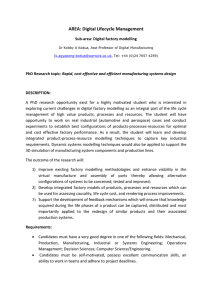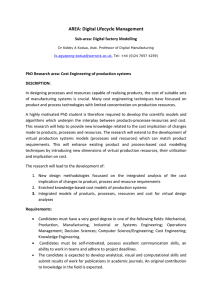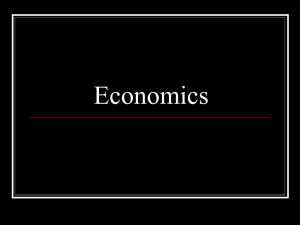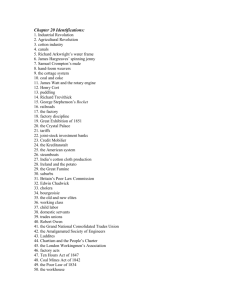AREA: Digital Lifecycle Management
advertisement
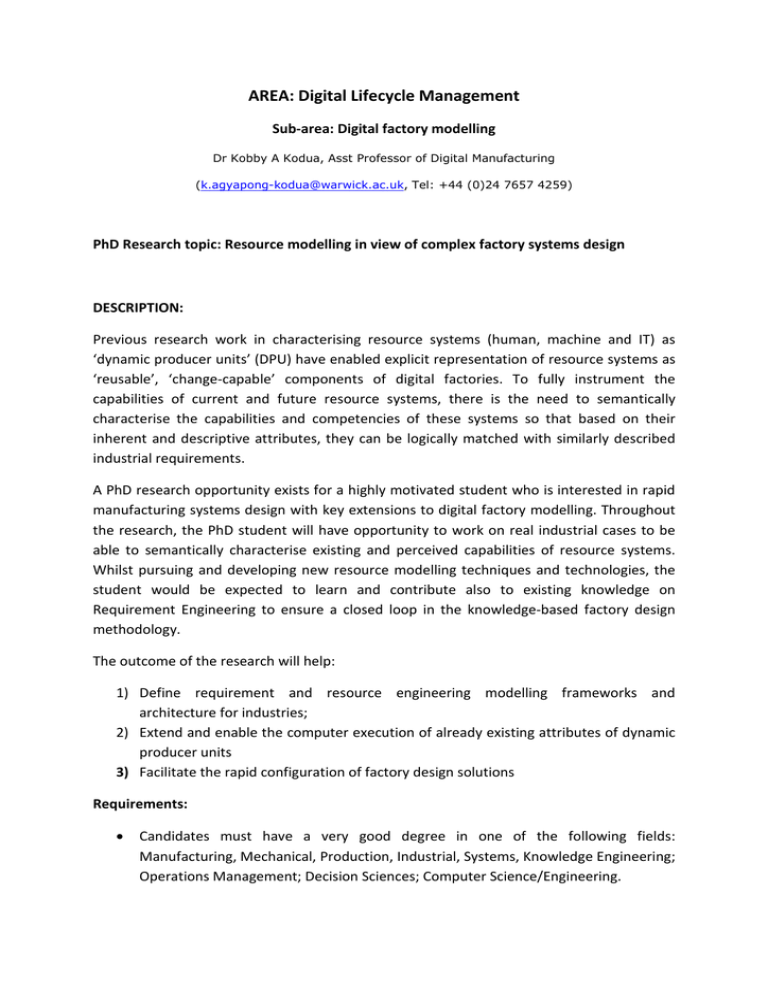
AREA: Digital Lifecycle Management Sub-area: Digital factory modelling Dr Kobby A Kodua, Asst Professor of Digital Manufacturing (k.agyapong-kodua@warwick.ac.uk, Tel: +44 (0)24 7657 4259) PhD Research topic: Resource modelling in view of complex factory systems design DESCRIPTION: Previous research work in characterising resource systems (human, machine and IT) as ‘dynamic producer units’ (DPU) have enabled explicit representation of resource systems as ‘reusable’, ‘change-capable’ components of digital factories. To fully instrument the capabilities of current and future resource systems, there is the need to semantically characterise the capabilities and competencies of these systems so that based on their inherent and descriptive attributes, they can be logically matched with similarly described industrial requirements. A PhD research opportunity exists for a highly motivated student who is interested in rapid manufacturing systems design with key extensions to digital factory modelling. Throughout the research, the PhD student will have opportunity to work on real industrial cases to be able to semantically characterise existing and perceived capabilities of resource systems. Whilst pursuing and developing new resource modelling techniques and technologies, the student would be expected to learn and contribute also to existing knowledge on Requirement Engineering to ensure a closed loop in the knowledge-based factory design methodology. The outcome of the research will help: 1) Define requirement and resource engineering modelling frameworks and architecture for industries; 2) Extend and enable the computer execution of already existing attributes of dynamic producer units 3) Facilitate the rapid configuration of factory design solutions Requirements: Candidates must have a very good degree in one of the following fields: Manufacturing, Mechanical, Production, Industrial, Systems, Knowledge Engineering; Operations Management; Decision Sciences; Computer Science/Engineering. Candidates must be self-motivated, possess excellent communication skills, an ability to work in teams and adhere to project deadlines. The candidate is expected to develop analytical, visual and computational skills and submit results of work for publications in academic journals. An original contribution to knowledge in the field is expected. Skills in semantic technologies (ontologies), Requirement Engineering using DOORS, Factory simulations (Delmia, FactoryCAD, Discrete Event Simulations, Visual Components, etc.), Programming languages (C++, Java, MATLAB, Visual Basic) will be beneficial. Consideration can also be given to candidates with great interest in the subject and having an appropriate Engineering degree but without the necessary computing skills.
